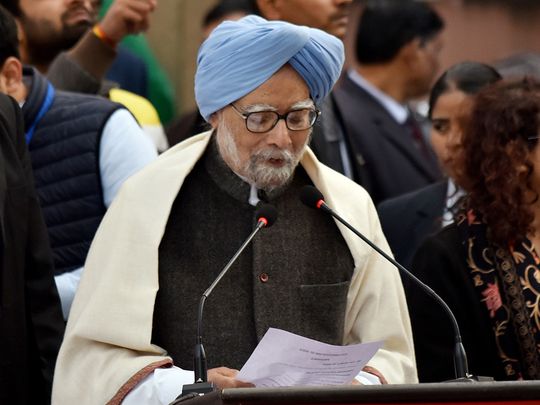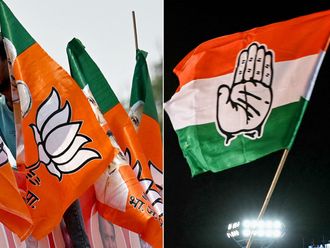
Former prime minister Manmohan Singh, the last of the stately Indian leaders has walked into the sunset of politics. Singh, 91, retired as a parliamentarian after 33 long years in the Rajya Sabha with his own words shadowing him, ‘History will be kinder to me’ he once said. There is already a billowing whiff of nostalgia in the present for a leader whose dignity and poise were rare traits in an increasingly unpolished political arena.
A gentleman politician who wore many hats, all of which mattered – economist, Reserve Bank Governor, Planning Commission chief, finance minister, and ultimately prime minister – several of Singh’s policies during his ten-year term are being served as old wine in a new bottle by the current dispensation, but without giving him the credit he deserves. The erudite, forward-thinking leader with a reformist mind was increasingly an anomaly in a political environment where facts are irrelevant and economic welfare, casual.
In 1991 Singh transitioned from bureaucracy to politics and presented his first budget as finance minister. At the time India’s foreign reserves were depleted and the country was on edge, staring at bankruptcy. ‘No power on earth can stop an idea whose time has come,’ quoting Victor Hugo in his inaugural budget speech he took India on the path of recovery.
‘I suggest to this august House that the emergence of India as a major economic power in the world happens to be one such idea. Let the whole world hear it loud and clear. India is now wide awake. We shall prevail. We shall overcome.’
Reforms and economic stability
Walking the talk on his famous words, Manmohan Singh dismantled the Licence Raj, ushered in an era of liberalisation, and chaperoned India into the direction of reforms and economic stability, fruits that its middle class continues to enjoy. As the prime minister, he was instrumental in further driving economic growth through the Special Economic Zones (SEZ) Act.
India’s reformist trajectory – including GDP clocking 10.08% and retaining an average above 7% during his years in office – is his biggest legacy and those lampooning his silence are waylaid by loud words that are hollow. Dr Manmohan Singh’s non-fussy demeanor sparkled with honesty, intellect, and dedication. Nation-building for India’s middle class was his ambition – he termed monetisation ‘a monumental mismanagement’ –and yet, the people he spoke for disdainfully cast him and his policies aside.
The former PM launched several key schemes during his tenure including the social welfare program MGNREGA – giving relief to rural workers – and the Right to Education. Notable among them is also the Right to Information (RTI) Act for political transparency but jettisoned in the current environment by denying information or scoring political points. Manmohan Singh’s other great achievement was the Indo-US Nuclear Deal, which paved the way for relations between the two countries that continue to be leveraged today.
Manmohan Singh’s second term as the prime minister however was shadowed by scams and corruption allegations. 2G Spectrum, Commonwealth Games, and coal scam sprinted one after the other to make this term a chequered one.
It was not just the accusations, the Mumbai terror attacks took place while he was in office, and four years later the Nirbhaya gangrape and murder shook the government as India hit the streets in outrage. India has changed since then, equally heinous crimes against women in the past few years have left both civil society and the media unmoved.
During his ten years at the helm Singh could not shrug off the tag of being the ‘Accidental PM,’ the man who unlike his predecessor Narasimha Rao posed no threat to Sonia Gandhi or her son and surprisingly, became the chosen one for the United Progressive Alliance (UPA) in 2004. This perceived lack of clout with Sonia as the power centre dodged Singh through the decade even if he preferred to focus on the economics, leaving the politics to her.
Sanjaya Baru, his former media advisor quotes Singh in his book, ‘There cannot be two centres of power. That creates confusion. I have to accept that the party president is the centre of power. The government is answerable to the party.’ That these were words of a prime minister, in India the most powerful man, did not reflect well. Another incident that tarred his reputation was his refusal to resign when Rahul Gandhi tore an ordinance that Manmohan Singh presided over.
Despite the setbacks, he remained like a giant tree that welcomes all under its shade. Singh is humble and without malice, many of his contemporaries would fail at this first test. His parliamentary conduct was beyond reproach nor is his dedication questionable, in his last political appearance a weakened Manmohan Singh attended Rajya Sabha in a wheelchair. In the final balance sheet, history will indeed be kinder.
Grace and dignity apart, he is also the last prime minister who addressed a press conference.
Fluent in Urdu, Prime Minister Singh in Parliament recited Mirza Galib’s famous couplet ‘Hum ko un se vafa ki hai umeed, jo nahin jante vafa kya hai,’ We are expecting loyalty from those who do not know the meaning of the word.
He knew. As we do now, they don’t make them like him anymore.










